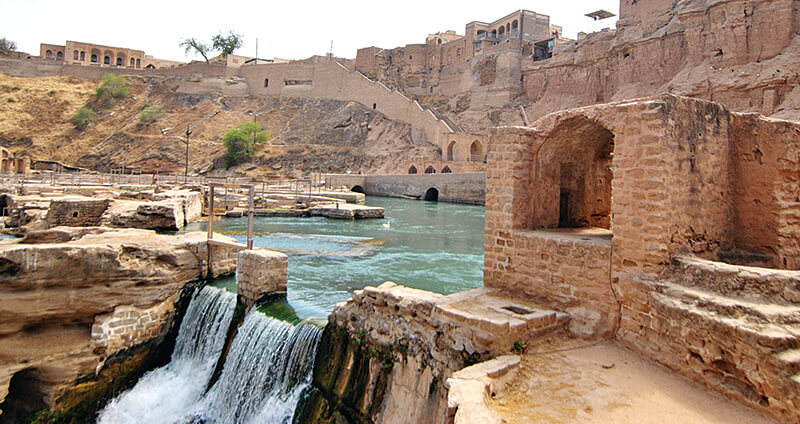October 30, 2020
Water scarcity and reduction in crop yield due to climate change could drop GDP by 10% in Middle East

A historic water collection and distribution facility. (photo courtesy World Bank Group)
WEST LAFAYETTE, Ind. – The Middle East is one of the most water scarce regions in the world. Many countries in the region have exploited their available water resources and left watersheds below the sustainable level of water withdrawal. Water is extensively used in agricultural activities and the region has seen declines in precipitation over time. Adding to those constraints, the region faces issues with population growth, economic development and the effects of climate change. Collectively, these patterns indicate that many Middle Eastern countries will experience major constraints to maintaining available water resources and expanding their crop production.
To understand whether these impacts can be mitigated, a team of agricultural economists from Purdue University assessed the economic impacts of climate-change induced water scarcity and crop yields change for six Middle Eastern countries in a research report supported by World Bank Group. The analysis was conducted using an advanced version of Global Trade Analysis Project’s (GTAP) computable general equilibrium model (GTAP-BIO-W) developed at Purdue University.
“The message is clear,” says Farzad Taheripour, professor of agricultural economics and lead researcher on the report. “Unless new and transformative policies for sustainable, efficient and cooperative water management are promoted, water scarcity will negatively impact the region’s economic prospects and undermine its human and natural capital.”
Researchers found that a 20% reduction in water supply and changes in crop yields induced by climate change could decrease GDP by up to 10% across the Middle Eastern region. Furthermore, increased water scarcity could reduce labor demand by up to 12%, particularly within agricultural sectors, and lead to significant land-use changes, including the conversion of natural pasture and forest to cropland in areas that are less water stressed within each country.
The report outlined a number of policies that could be implemented to alleviate the impact on the region including enacting policies that encourage farmers in the region to use more efficient irrigation methods and provide incentives for all water users who choose to invest in water saving technologies and practices, while placing penalties on those who do not. Researchers also stated that climate change would create a reduction in future crop yields and recommended that countries begin developing long-term trade relationships to account for an increase in their food import needs.
The full report, “Water in the Balance: The Economic Impacts of Climate Change and Water Scarcity in the Middle East,” and a summary for policymakers is available at World Bank Group’s Open Knowledge Repository: https://openknowledge.worldbank.org/handle/10986/34498.
Writer: Kami Goodwin, kami@purdue.edu
Source: Farzad Taheripour, tfarzad@purdue.edu
Agricultural Communications: 765-494-8415;
Maureen Manier, Department Head, mmanier@purdue.edu

